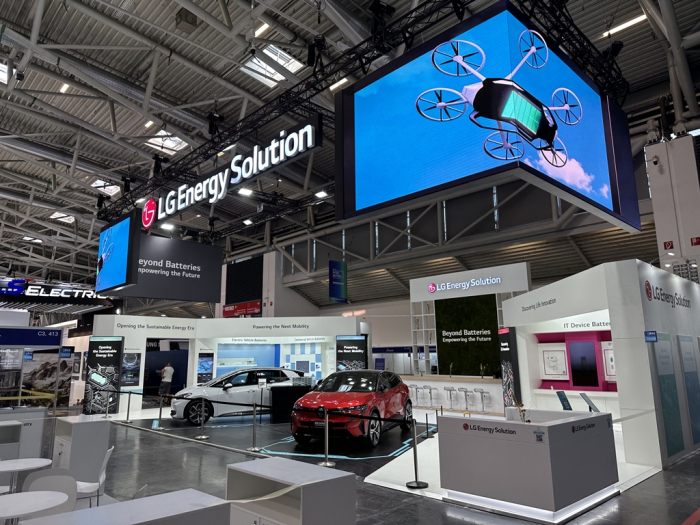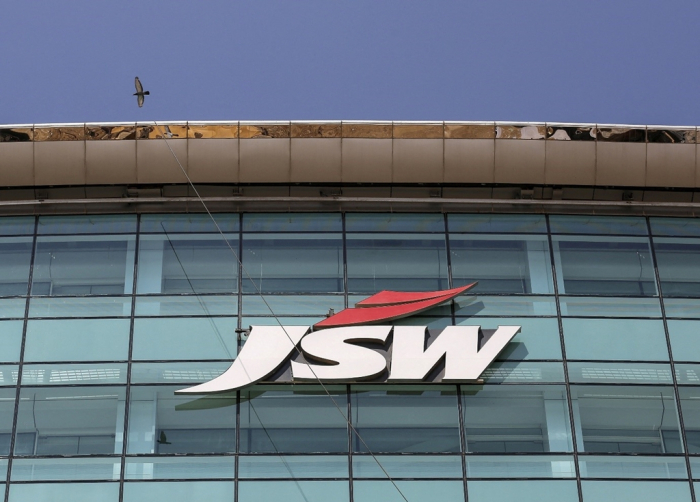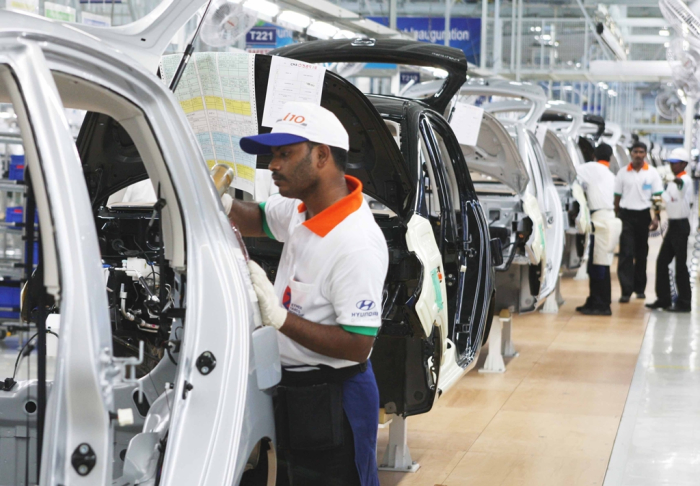Batteries
LG Energy may partner with JSW to make EV batteries in India
A successful deal would solidify LG’s presence in India, where it already supplies batteries to scooter makers
By Sep 22, 2023 (Gmt+09:00)
2
Min read
Most Read
LG Chem to sell water filter business to Glenwood PE for $692 million


Kyobo Life poised to buy Japan’s SBI Group-owned savings bank


KT&G eyes overseas M&A after rejecting activist fund's offer


StockX in merger talks with Naver’s online reseller Kream


Mirae Asset to be named Korea Post’s core real estate fund operator



South Korea’s LG Energy Solution Ltd., one of the world’s largest battery makers, is in talks with Indian steel-to-energy conglomerate JSW to make electric vehicle batteries in India.
JSW held talks with senior LG Energy executives in Korea earlier this month, proposing a partnership to jointly manufacture battery cells for EVs and energy storage systems (ESS), Reuters reported on Thursday, citing unidentified sources.
The Indian business group wants to set up a factory to produce 20 gigawatt hours (GWh) in battery capacity in phases by the end of this decade, starting with 8 GWh in the first phase, one of the people with knowledge of the matter, was quoted as saying.
LG, which supplies battery cells to major global automakers, including Tesla Inc. and General Motors Co., has asked JSW to share details of its requirements for EVs and energy storage, sources said.
Both LG Energy and JSW declined to comment on the Reuters report.
The Indian company, headquartered in Mumbai, is also in talks with other battery players, including China’s Contemporary Amperex Technology Co. Ltd. (CATL) and Japan’s Panasonic and Toshiba, according to the report.
JSW’s talks with potential partners are ongoing and a final decision hasn’t been made, it said.
JSW’s billionaire Chairman Sajjan Jindal has expressed his desire to build a local supply chain covering batteries and electric cars.

ATTRACTIVE MARKET FOR LG ENERGY
With about 4.76 million car sales in the domestic market last year, India is the world’s third-largest auto market after China and the US and among the fastest-growing EV markets in Asia.
India is also the world’s most populous country with 1.43 billion people, surpassing China earlier this year.
With only a handful of companies offering electric cars, India’s EVs accounted for a mere 1% of its total four-wheeler sales in 2022.
The Indian government is pushing to expand EV adoption by incentivizing carmakers and subsidizing consumers to raise the share of EVs to 30% of its total cars by 2030.
India also offers companies billions of dollars in incentives to locally produce batteries and other EV components.
Tesla is among those carmakers said to be in talks with the Indian government to build EVs and batteries there.

BATTERIES FOR SCOOTERS
Earlier this year, LG Energy opened an office in India’s capital New Delhi to enhance its presence in the fast-growing EV and energy storage businesses.
The Korean company already supplies imported battery cells to India’s two electric scooter makers – SoftBank-backed Ola Electric and homegrown rival TVS Motor.
LG is developing batteries suitable for two-wheeled vehicles through its startup KooRoo, which offers battery-swapping services.
Korean carmakers are also tapping business opportunities in India.
Last month, Hyundai Motor Co. signed a deal to take over a GM car manufacturing plant in Talegaon, Maharashtra.
Hyundai, which already operates a plant in Chennai, dubbed the Detroit of Asia, with an annual production capacity of 820,000 vehicles, is expected to increase its output capacity to 1 million units with the acquisition of the GM factory and more investment.
Write to Nan-Sae Bin at binthere@hankyung.com
In-Soo Nam edited this article.
More to Read
-
 BatteriesLG Energy raises $1 bn in bonds for EV battery production
BatteriesLG Energy raises $1 bn in bonds for EV battery productionSep 19, 2023 (Gmt+09:00)
2 Min read -

-
 AutomobilesHyundai acquires GM’s Indian plant, aims to sell more SUVs, EVs
AutomobilesHyundai acquires GM’s Indian plant, aims to sell more SUVs, EVsAug 16, 2023 (Gmt+09:00)
4 Min read -
 BatteriesLG Energy to build $5.6 billion battery complex in Arizona
BatteriesLG Energy to build $5.6 billion battery complex in ArizonaMar 24, 2023 (Gmt+09:00)
3 Min read
Comment 0
LOG IN


